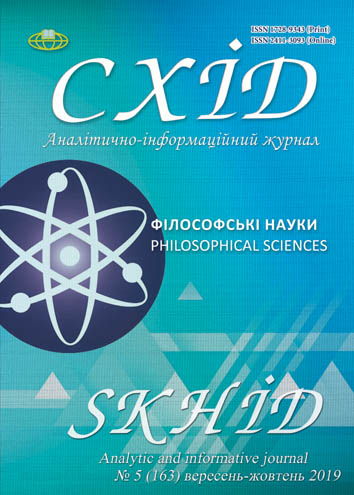Basic hermeneutic approaches to interpretation of videogames
DOI:
https://doi.org/10.21847/1728-9343.2019.5(163).181868Keywords:
videogame, hermeneutics, ludo-hermeneutics, procedural rhetoric, procedural hermeneutics, real-time hermeneutics, interpretationAbstract
The article is devoted to the videogame interpretation and the basic hermeneutic approaches to interpretation of videogames. Videogames are complex contemporary phenomenon that differs from other media with its interactivity and specific relations between game and player. The absence of common methodology, especially hermeneutic methodology, makes it hardly possible to deal with the interpretation of videogames and understanding of specific features of interpretation of games by player, spectator and developer. Key concepts of hermeneutics important for the solving the tasks of the article are described. The result of given research is the distinguishing of four basic hermeneutic approaches according to the core concept of understanding the videogame phenomenon: 1) game hermeneutics / hermeneutics in general - without specific core concept (videogame is interpreted without consideration of its interactivity); 2) ludo-hermeneutics - with the game as core concept (videogame is interpreted as a game, but the game is prioritized above player); 3) procedural hermeneutics - with rules as core concept (videogame is interpreted as procedural system; this approach does not consider the importance of player’s actions and possibility of breaking rules); 4) real-time hermeneutics - with interactivity as core concept (videogame is interpreted as interactive system; this approach states the particular role of player and distinguishes it from the role of spectator). The detailed characteristics of mentioned approaches are given. The plurality of interpreters of videogames is mentioned. Not only players, who interpret games with the view of winning, but also spectators and developers can interpret videogames differently because of different positions and influence on interpretation of each other. In conclusion, uncovered field of interpretation and aspects disregarded by previous researches on hermeneutic interpretation of videogames are described.Downloads
References
Downloads
Published
How to Cite
Issue
Section
License
Copyright (c) 2019 Maria Maletska, Olexandr Horban, Olexandr Horban

This work is licensed under a Creative Commons Attribution-NonCommercial-NoDerivatives 4.0 International License.
1. Authors bear responsibility for the accuracy of facts, quotations, numbers and names used.
2. Manuscripts are not sent back.
3. The publisher does not always agree with the authors' opinion.
4. The authors reserve the right to authorship of the work and pass the first publication right of this work to the journal under the terms of a Creative Commons Attribution-NonCommercial-NoDerivatives 4.0 International License. This license allows others to distribute (copy) the published work for non-commercial purposes, provided there is mandatory attribution to its authors and a link to the first publication in our journal.
5. The authors have the right to conclude separate supplement agreements that relate to non-exclusive work distribution in the form in which it has been published by the journal (for example, to upload the work to the online storage of the journal or publish it as part of a monograph), provided that the reference to the first publication of the work in this journal is included.

